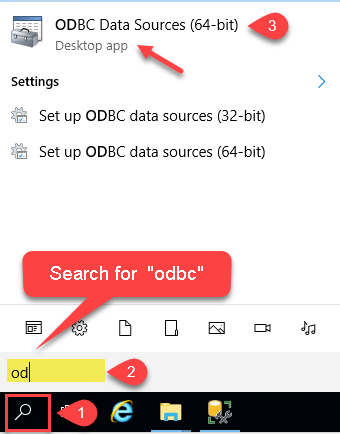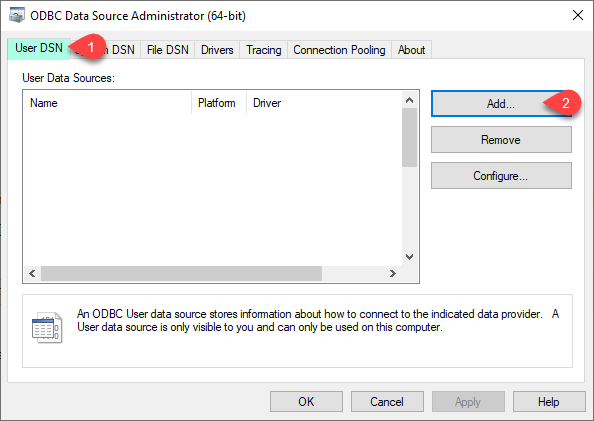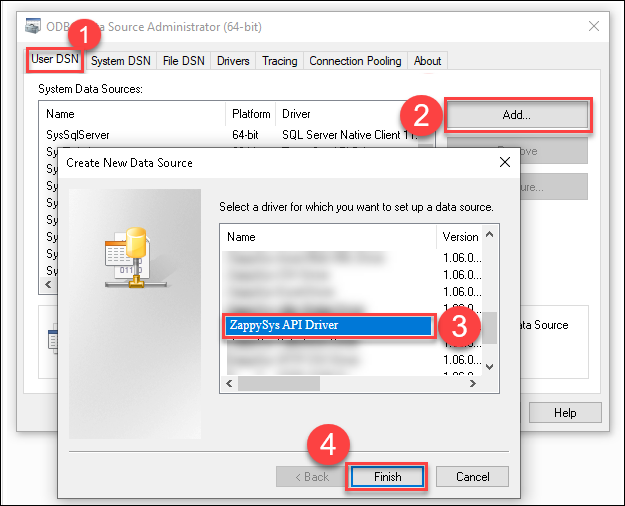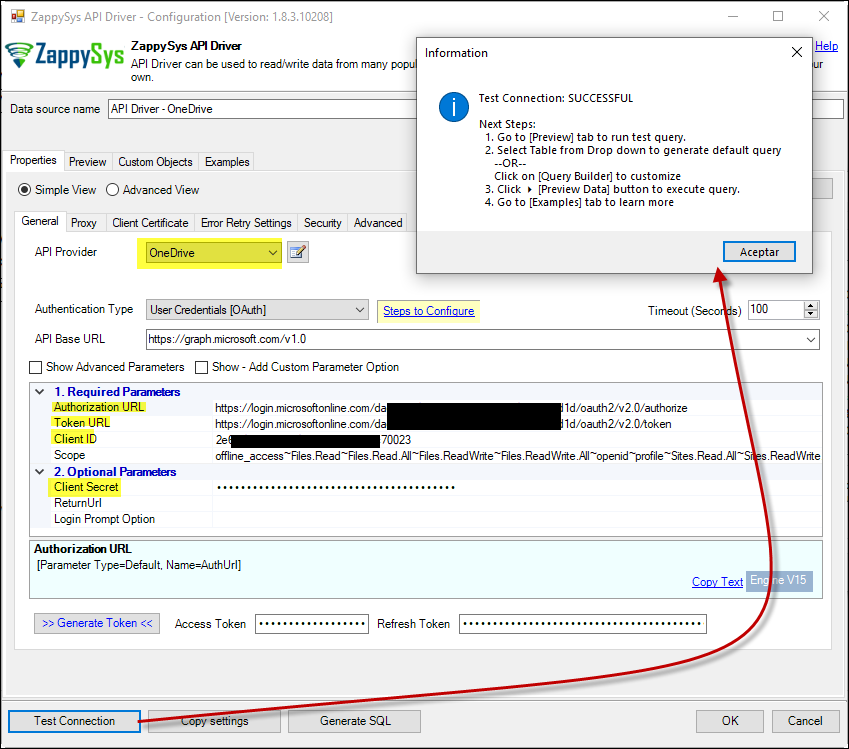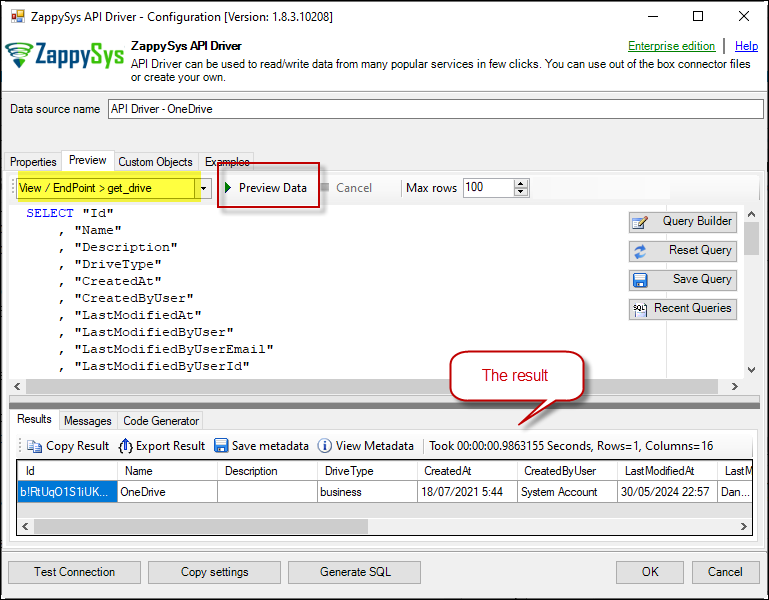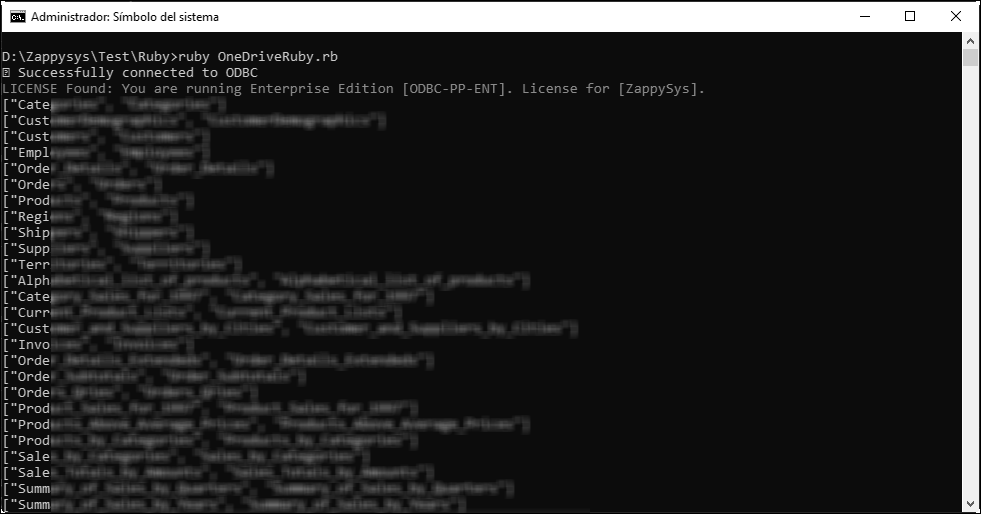Introduction
Connecting Ruby to Onedrive via ODBC is an excellent option for providing seamless interaction, enabling you to manage cloud files efficiently and streamline workflows. This article will show you how to install and use the ruby-odbc gem to connect to a database via ODBC, along with recommendations and solutions to typical installation and execution errors.
Prerequisites
- ODBC PowerPack: Download and install the ZappySys ODBC PowerPack from the Customer Download Area or the trial version.
- Microsoft account
Steps
Step 1. Installing Ruby and the ruby-odbc Gem
Some versions of Ruby may not be fully compatible with the ruby-odbc gem. To ensure proper functionality, it is recommended to use Ruby 3.1.x, as newer versions may introduce compatibility issues
- Download the installer from Ruby installer
- Install Ruby and DevKit.
- Open Command Prompt as an administrator
- Verify the version you are using with this command
ruby -v - install the
ruby-odbcgem with the following command:gem install ruby-odbc - Verify the gem installed with this command:
gem list ruby-odbc
Note: If you encounter installation issues, you may need administrative permissions
Step 2: Create an Application on the OneDrive Side
- Go to the Azure Portal and log in.
- Navigate to Azure Active Directory.
- Click App registrations.
- Select New registration.
- Enter an application name.
- Choose Accounts in this organizational directory only for the supported account type.
- For the Redirect URI, select Web and enter
https://login.microsoftonline.com/common/oauth2/nativeclientor any valid redirect URL, likehttps://zappysys.com/oauth. - Save your Application (client) ID, TenantID, and Secret ID.
Step 3: Create a New Driver
-
Open ODBC Data Source by typing “ODBC” in the search box.
-
For SQL Server Integration, go to User DSN or System DSN. Click Add.
-
From the driver list, select ZappySys API Driver, choose OneDrive, and click Continue.
Step 4: OneDrive Connector Configuration
- Fill in Client ID and Client Secret and specify the necessary Scopes. Use the following URLs for Authorization and Token:
* https://login.microsoftonline.com/{tenant_id}/oauth2/v2.0/authorize
* https://login.microsoftonline.com/{tenant_id}/oauth2/v2.0/token
-
Generate the token and test the connection.
-
Go to the Preview Tab, select a table, and view the results.
Step 5. Connecting Ruby to ODBC
Once the DSN is set up, you can use ruby-odbc to establish the connection and run queries. Create a Ruby file, e.g. OneDriveRuby.rb
require 'odbc'
# DSN name configured in ODBC
dsn = "API Driver - OneDrive" # Replace with the correct name
begin
# Connect to the database using DSN
db = ODBC.connect(dsn)
# Verify connection
puts "✅ Successfully connected to ODBC"
# Execute a test query
query = "SELECT * FROM Drives" # Adjust according to your database
stmt = db.run(query)
# Check if there is data
rows = stmt.fetch_all
if rows.empty?
puts "⚠️ No data found in the database."
else
# Display results
rows.each do |row|
puts row.inspect
end
end
# Close connection
stmt.close
db.disconnect
rescue ODBC::Error => e
puts "❌ Connection error: #{e.message}"
end
When you run the code, it will call the API and retrieve data.
Common Errors and Solutions
 Error:
Error: cannot load such file -- dbi (LoadError)
Cause: You are trying to use the dbi gem, but it is not installed.
Solution:
gem install dbi
gem install dbd-odbc
 Error:
Error: ERROR: Failed to build gem native extension.
Cause: A compiler or necessary libraries are missing to compile the gem.
Solution: Install MSYS2 and ensure gcc and make are available.
 Error:
Error: Data source name not found, and no default driver specified
Cause: The DSN is not configured or the driver is not installed.
Solution:
- Verify the configuration in
odbcad32.exe - Ensure the DSN name in the code exactly matches the one configured in ODBC.
 Error: Issues with Ruby Version
Error: Issues with Ruby Version
Cause: Some Ruby versions may not be compatible with the ruby-odbc gem, especially if they are too new or too old.
Solution:
- Check your Ruby version with:
ruby -v - If your version is 3.2.x and you experience issues, try using an earlier version of Ruby (e.g., 2.7.x) or use RVM to switch versions:
rvm install 2.7.8 rvm use 2.7.8
Conclusion
Click here to download and connect Ruby with OneDrive API Driver in ODBC using ruby-odbc, it is a flexible and effective way to interact with databases. Following this guide, you can install, configure, and troubleshoot common issues when establishing the connection. If you encounter additional problems, review the error logs and ensure the DSN is correctly set up.
Related Links:
Contact Us
If you encounter any challenges or have specific use cases, please contact our support team via chat or ticket.

